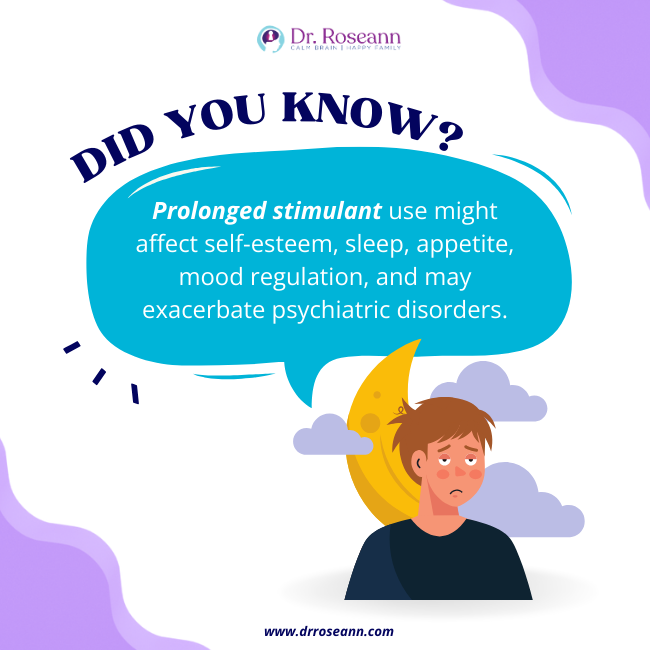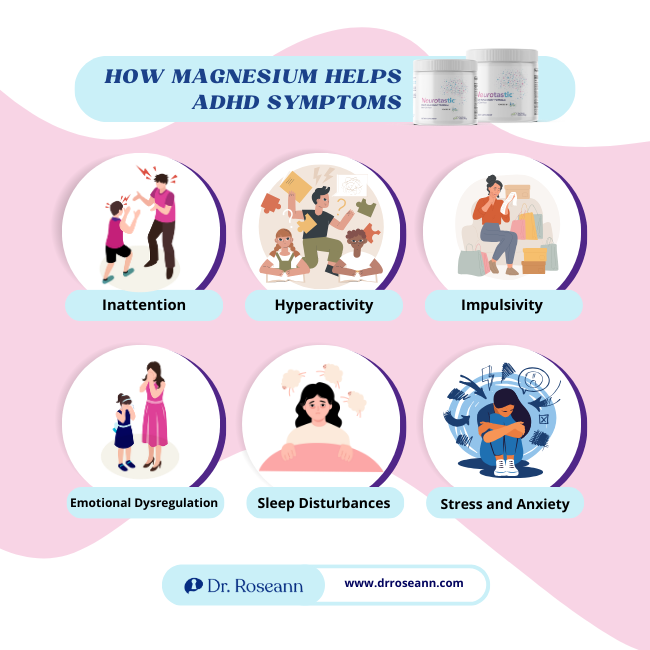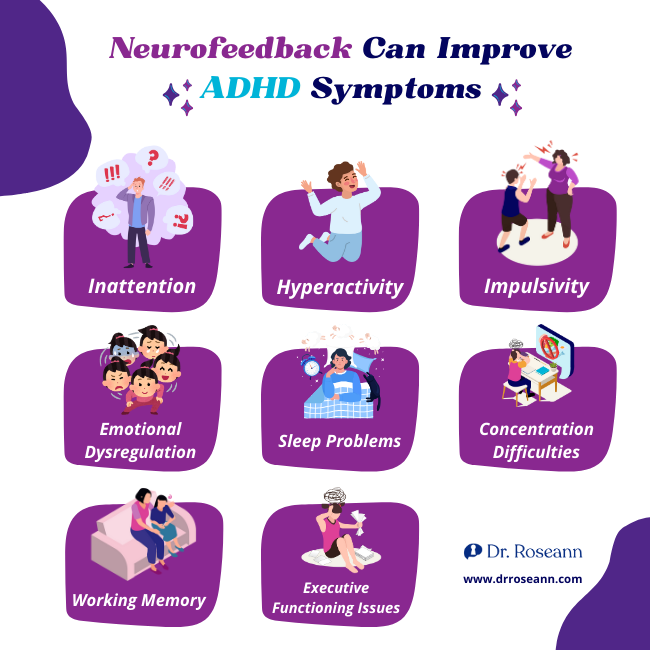It's crucial to clarify the distinction between ADHD and ADD medication and use of the acronym. In the past, Attention Deficit Disorder (ADD) was commonly used to describe individuals primarily experiencing inattention without hyperactivity. However, diagnostic terminology has evolved, and ADHD now covers various presentations, including inattentive, hyperactive-impulsive, and combined types.
Consequently, ADD is considered an outdated term, and ADHD is the preferred and inclusive terminology used in clinical practice. Thus, there's no difference between ADHD and ADD medication. They target the same underlying symptoms and conditions.
How ADHD Meds Affect the Brain
ADHD medications are essential components of treatment plans for individuals diagnosed with ADHD. These medications come in various forms, including stimulants and non-stimulants. Stimulant medications, such as Adderall and Ritalin, are the most commonly prescribed for attention, focus, and impulse control.
Non-stimulant medications, like Strattera, are often presented as alternative options for those who may not respond well to stimulants or have concerns about their side effects.
ADHD medication functions by modulating neurotransmitter levels in the brain, particularly dopamine and norepinephrine. Stimulant medications increase the availability of these neurotransmitters in the brain's prefrontal cortex, which is responsible for executive functions such as attention, organization, and self-control. ADHD medications work by altering neurotransmitters to help individuals regulate their behavior and manage ADHD symptoms more effectively.
Despite the well-documented short-term benefits and safety of stimulant medications in treating ADHD in children, there's limited understanding of their long-term effects. Questions linger regarding potential negative consequences such as increased drug abuse, mania, or psychosis, as well as uncertainties about sustained benefits beyond symptom relief. While some studies suggest no lasting harm from chronic stimulant use, others point to behavioral sensitization in animals (Vitiello, 2001)
Side Effects of ADHD Medications
Psychological Impact of ADHD Medications

Using ADHD medications means not only understanding its benefits but also being aware of its potential side effects. While these medications are generally safe and effective in managing symptoms, it's essential to recognize the range of possible reactions that may arise. Here's a comprehensive overview of common side effects associated with ADHD medication and tips for managing them effectively:
- Decreased appetite: Some children may experience a reduced appetite, affecting eating patterns and nutritional intake.
- Difficulty sleeping: Sleep disturbances, such as insomnia or disrupted sleep patterns, may occur due to ADHD medication.
- Increased heart rate: Stimulant medications used to treat ADHD can lead to elevated heart rates or palpitations in some children.
- Irritability: Feelings of irritability or mood swings may emerge as a side effect of ADHD medication, affecting emotional well-being.
- Headaches: Some children may experience headaches as a side effect of ADHD medication, ranging from mild discomfort to more severe headaches.
- Stomach upset: Digestive issues, such as nausea or stomach discomfort, may occur temporarily after taking ADHD medication.
- Dizziness: Sensations of dizziness or lightheadedness may occasionally arise as a side effect of ADHD medication, particularly during the initial adjustment period.
- Tics: In rare cases, stimulant medications may exacerbate or trigger tics in children predisposed to tic disorders.
Magnesium and Neurofeedback as Alternative Treatments
Several alternative remedies and complementary therapies are sometimes explored by parents for their children with ADHD, although it's crucial to consult with a healthcare professional before trying any new treatments. Some of these alternative approaches include:
Magnesium Supplements

While medications are often the most common form of ADHD treatment, some parents may seek alternative or complementary approaches. One such option is magnesium supplementation, which has shown promise in managing ADHD symptoms.
Magnesium is essential in various neurological processes, including neurotransmitter function and brain signaling. Many research suggests that children with ADHD may have lower magnesium levels, and supplementation may help alleviate symptoms.
One study investigated magnesium levels in children with ADHD compared to normal levels and the effects of magnesium supplementation as an additional treatment for those deficient. Out of 25 ADHD patients, 72% were found to have magnesium deficiency. Those who received magnesium supplementation showed improved cognitive functions, with minor side effects reported. The findings suggest that magnesium supplementation is beneficial and safe as an adjunctive therapy for ADHD (Baza et al., 2016).
ADHD medications play a crucial role in managing symptoms and improving the quality of life for individuals with ADHD. Understand the nuances of ADHD medication, including its effects on the brain and potential side effects for informed decision-making. Additionally, exploring alternative therapies, such as magnesium supplementation, can provide additional options for individuals seeking comprehensive ADHD management strategies.
Neurofeedback

Neurofeedback is a non-invasive therapy that has garnered attention as a potential intervention for ADHD. The technique involves measuring brainwave activity, often using electroencephalography (EEG), and providing real-time feedback to individuals about their brain functioning. Through repeated sessions, participants learn to modify their brainwave patterns, aiming to enhance attention, impulse control, and other cognitive functions associated with ADHD.
Research indicates that neurofeedback can lead to improvements in ADHD symptoms, such as reduced impulsivity and increased attention span. The effectiveness of neurofeedback may vary among individuals, and it is often used as part of a comprehensive treatment approach that may include nutrition supplementation, behavioral therapy, and lifestyle modifications (Gevensleben et al., 2012).
The Neurotastic™ Multi-Mag Brain™ Formula is a powerful magnesium supplement that comes in powder form. It is designed to support a calm brain and promote mental wellness. Get it and watch your child thrive!
What is Adderall used for?
Adderall is primarily used to treat attention deficit hyperactivity disorder (ADHD) and narcolepsy. It helps improve focus, attention, and impulse control in individuals with ADHD, and it helps manage excessive daytime sleepiness in narcolepsy.
What does Adderall do?
Adderall, a stimulant medication, works by increasing the levels of certain neurotransmitters in the brain, such as dopamine and norepinephrine. This helps to improve focus, attention, and impulse control, particularly in individuals with ADHD.
What is a stimulant?
A stimulant is a medication or substance that increases brain and body activity. Stimulants typically work by enhancing the activity of certain neurotransmitters, such as dopamine and norepinephrine, which can lead to increased alertness, attention, and energy levels. Examples of stimulants include medications like Adderall and Ritalin, as well as substances like caffeine and nicotine.
How do stimulants help ADHD?
Stimulants help ADHD by increasing the levels of neurotransmitters like dopamine and norepinephrine in the brain, which play crucial roles in regulating attention, focus, and impulse control. Enhancing neurotransmitter activities improve attention span, reduce impulsivity, and manage hyperactivity in individuals with ADHD.
How to treat ADHD?
Treatment for ADHD typically involves a combination of medication, such as stimulants, behavioral therapy to develop coping strategies, and lifestyle modifications like regular exercise and sufficient sleep. It's essential for individuals to work closely with healthcare professionals to tailor a comprehensive treatment plan suited to their needs.
Do SSRIs help with ADHD?
Selective serotonin reuptake inhibitors (SSRIs) are not typically used as first-line treatments for ADHD, as they primarily target serotonin levels in the brain rather than dopamine and norepinephrine, the neurotransmitters primarily implicated in ADHD. While SSRIs may help manage co-occurring conditions like anxiety or depression that can sometimes accompany ADHD, they are generally not considered as primary treatments for ADHD symptoms.
Is ADHD medication bad?
ADHD medication, when prescribed and used appropriately under the guidance of a qualified healthcare professional, can help manage symptoms and improve the daily functioning of individuals with ADHD. However, like any medication, ADHD medications can have potential side effects and risks, which vary depending on the specific medication and individual factors. It's essential for parents to discuss any concerns or questions about ADHD medication with their healthcare provider to make informed decisions about treatment for their children.
Is ADHD medication worth it?
For many individuals with ADHD, medication may improve their quality of life by reducing symptoms such as inattention, impulsivity, and hyperactivity. While medication may not be the right choice for everyone, it may help some who experience significant impairment due to ADHD symptoms. However, the side effects of ADHD medications should always be considered when making the decision to pursue this mode of treatment. A consultation with healthcare professionals is necessary.
What is ADHD pills?
ADHD pills refer to medications commonly prescribed to manage symptoms of attention deficit hyperactivity disorder (ADHD). These medications typically fall into two categories: stimulants, such as methylphenidate (e.g., Ritalin) and amphetamines (e.g., Adderall), and non-stimulants like atomoxetine (Strattera). ADHD pills work by altering neurotransmitter levels in the brain to improve attention, focus, and impulse control in individuals with ADHD.
Is coffee good for ADHD?
Coffee, which contains caffeine, may provide temporary relief for some individuals with ADHD by increasing alertness and improving focus. However, its effectiveness can vary greatly among individuals, and excessive caffeine consumption can lead to negative side effects such as increased anxiety and jitteriness. While moderate coffee consumption may offer some benefits for ADHD symptoms, it's essential for individuals to monitor their caffeine intake and consult with a healthcare professional for personalized advice.
Is ADHD medicine safe?
ADHD medications, when prescribed and monitored by a qualified healthcare professional, are generally considered safe and effective for managing symptoms. However, like any medication, they can carry potential risks and side effects, which vary depending on the specific medication and individual factors.
How to tell if ADHD medication is working?
The effectiveness of ADHD medication can be assessed by monitoring changes in symptoms such as improved focus, attention span, and impulse control, as well as reductions in hyperactivity. Additionally, individuals may notice improvements in daily functioning, academic or work performance, and overall quality of life. Regular communication with a healthcare provider is essential to evaluate the medication's effectiveness and make any necessary adjustments to the treatment plan.
Can adhd meds help with anxiety?
In some cases, ADHD medications, particularly stimulants like methylphenidate or amphetamines, may help alleviate symptoms of anxiety, especially if the anxiety is secondary to ADHD. By improving focus, attention, and impulse control, these medications can indirectly reduce feelings of anxiety related to ADHD-related challenges.
Why do doctors ignore side effects?
Doctors do not intentionally ignore side effects, but they may sometimes prioritize the benefits of a medication over its potential risks, especially if the benefits outweigh the side effects for a particular individual. Additionally, doctors may not be fully aware of all possible side effects, or they may need to balance multiple factors, such as the severity of the condition being treated and the available treatment options, when making treatment decisions.
Citations
Baza, F. E., AlShahawi, H. A., Zahra, S., & AbdelHakim, R. A. (2016). Magnesium supplementation in children with attention deficit hyperactivity disorder. Egyptian Journal of Medical Human Genetics, 17(1), 63–70. https://www.ajol.info/index.php/ejhg/article/view/130933
Gevensleben, H., Rothenberger, A., Moll, G. H., & Heinrich, H. (2012). Neurofeedback in children with ADHD: validation and challenges. Expert Review of Neurotherapeutics, 12(4), 447–460. https://doi.org/10.1586/ern.12.22
Vitiello, B. (2001). Long-Term Effects of Stimulant Medications on the Brain: Possible Relevance to the Treatment of Attention Deficit Hyperactivity Disorder. Journal of Child and Adolescent Psychopharmacology, 11(1), 25–34. https://doi.org/10.1089/104454601750143384
Dr. Roseann is a mental health expert in ADHD who frequently is in the media:
- The Healthy 12 Silent Signs of Adult ADHD You Might Be Ignoring
- Seeme & Liz 12 Essential Parenting Tips For Kids with ADHD
- Evan H. Hirsch, MD – EnergyMD with Dr. Roseann Capanna-Hodge (Video) Topic: Is it Brain Fog or ADHD?
Always remember… “Calm Brain, Happy Family™”
Disclaimer: This article is not intended to give health advice and it is recommended to consult with a physician before beginning any new wellness regime. *The effectiveness of diagnosis and treatment vary by patient and condition. Dr. Roseann Capanna-Hodge, LLC does not guarantee certain results.
Are you looking for SOLUTIONS for your struggling child or teen?
Dr. Roseann and her team are all about science-backed solutions, so you are in the right place!
Is it ADHD or something else?
Take the ADHD Quiz to Find Out Why Your Kid Can’t Focus, Listen, or Complete Tasks
Dr. Roseann is a Children’s Mental Health Expert and Licensed Therapist who has been featured in/on hundreds of media outlets including The Mel Robbins Show, CBS, NBC, PIX11 NYC, Today, FORBES, CNN, The New York Times, The Washington Post, Business Insider, Women’s Day, Healthline, CNET, Parade Magazine and PARENTS. FORBES called her, “A thought leader in children’s mental health.”

She coined the terms, “Re-entry panic syndrome” and “eco-anxiety” and is a frequent contributor to media on mental health.
Dr. Roseann Capanna-Hodge has three decades of experience in working with children, teens and their families with attention-deficit hyperactivity disorder (ADHD), autism, concussion, dyslexia and learning disability, anxiety, Obsessive Compulsive Disorder (OCD), depression and mood disorder, Lyme Disease, and PANS/PANDAS using science-backed natural mental health solutions such as supplements, magnesium, nutrition, QEEG Brain maps, neurofeedback, PEMF, psychotherapy and other non-medication approaches.
She is the author of three bestselling books, It’s Gonna Be OK!: Proven Ways to Improve Your Child's Mental Health, The Teletherapy Toolkit, and Brain Under Attack. Dr. Roseann is known for offering a message of hope through science-endorsed methods that promote a calm brain.
Her trademarked BrainBehaviorResetⓇ Program and It’s Gonna be OK!Ⓡ Podcast has been a cornerstone for thousands of parents facing mental health, behavioral or neurodevelopmental challenges.
She is the founder and director of The Global Institute of Children’s Mental Health, Neurotastic™Brain Formulas and Dr. Roseann Capanna-Hodge, LLC. Dr. Roseann is a Board Certified Neurofeedback (BCN) Practitioner, a Board Member of the Northeast Region Biofeedback Society (NRBS), Certified Integrative Mental Health Professional (CIMHP) and an Amen Clinic Certified Brain Health Coach. She is also a member of The International Lyme Disease and Associated Disease Society (ILADS), The American Psychological Association (APA), Anxiety and Depression Association of America (ADAA) National Association of School Psychologists (NASP), International OCD Foundation (IOCDF).
© Roseann-Capanna-Hodge, LLC 2024










